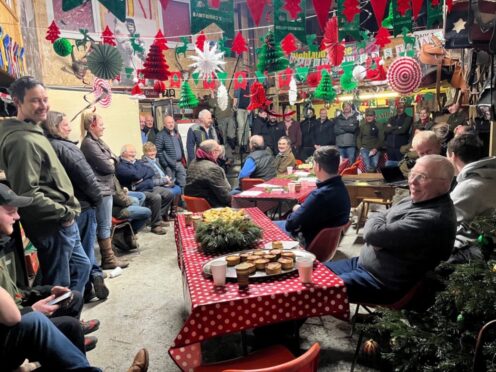Farmers and crofters from the Spey catchment area of the Cairngorms National Park have formed a group following significant concerns caused by the introduction of beavers by the Cairngorms National Park Authority (CNPA).
More than 50 people representing crofting, farming and other rural activities from Laggan, Dalwhinnie, Grantown-on-Spey and Glenlivet, turned out for the meeting held in Kingussie recently, while a further 16 people gave their apologies.
The farmer-led group came together following the announcement of the reintroduction of beavers to the area, which many have argued was decided without proper consultation to the agricultural sector.
Fears are now growing that this could impact farming livelihoods and affect the land management of food-producing fields and crops.
While the group does recognise the positive impact beavers can have in the right place, they say any burrowing into the 200-year-old flood banks of the River Spey could be devastating for farms under flood conditions.
The group said this has already been physically and economically demonstrated along the River Tay.
Robert MacDonald, from Grantown-on-Spey, has been appointed chair of the group.
He said: “We are realising that since the park’s inception nearly 20 years ago, farmers and crofters have not been afforded the opportunity to engage in the far-reaching decisions taken by the park authority.
“With so much importance placed on land managers and owners engaging with their local communities, it is surprising the park has taken this approach when its actions have a considerable impact on those trying to manage rural businesses in the area.
“This continued evasive behaviour has started to breed a lack of confidence in agency boards and politicians to champion local issues.
“Our collective wants to work constructively with the park for the greater good of the
environment in the Cairngorms, working together towards mutually beneficial solutions.”
Local farmer Ruaridh Ormiston added: “The group is keen to ensure the practicalities of real life on the ground, including the provision and maintenance of sustainable agriculture is recognised and fully understood by policy makers and agencies. It is hoped that the group will be a recognised and respected voice to all concerned.”
The meeting also highlighted that there had been no consultation with farmers and crofters on other local projects including the current Wildcat Release Programme or the current Park 5-year Plan, notably Objective A9, to reconnect rivers to the floodplain.
There was much discussion about how rural voices are not listened to anymore, both locally and nationally, and the group felt a severe lack of confidence in agency boards and politicians to champion local issues.
The group will continue to work closely with NFUS Highland region and will engage with Scottish Crofting Federation and Scottish Land & Estates as relevant.
